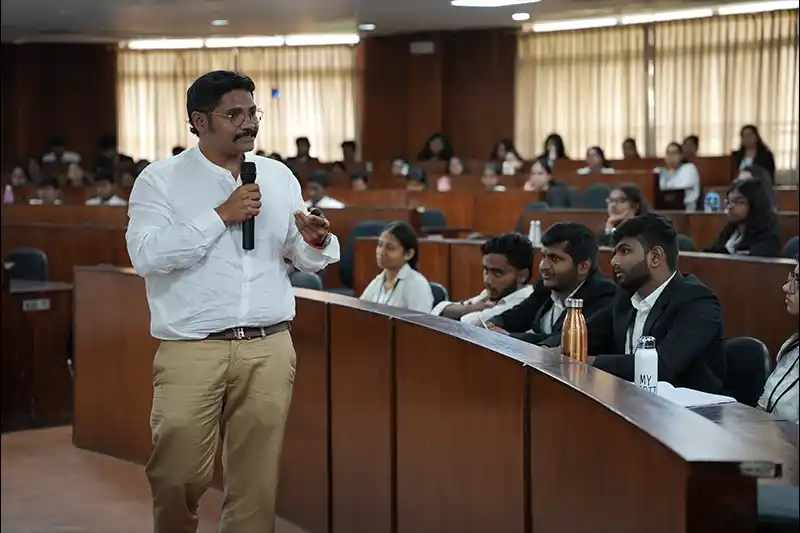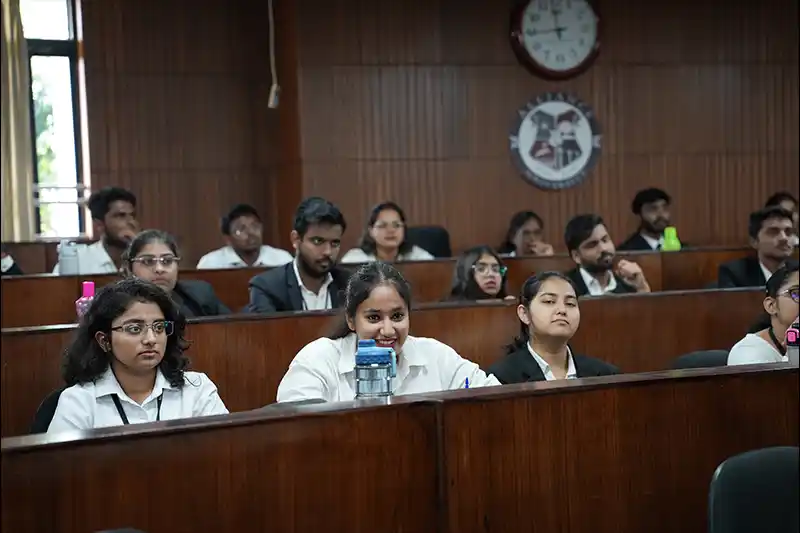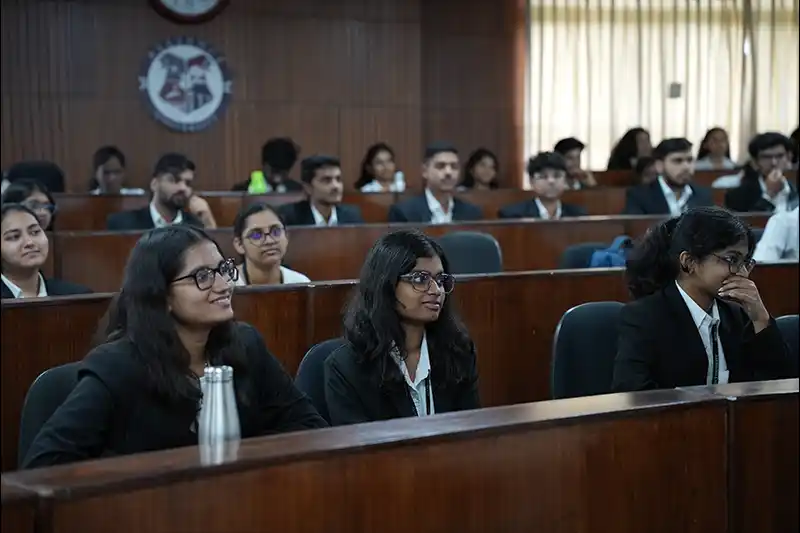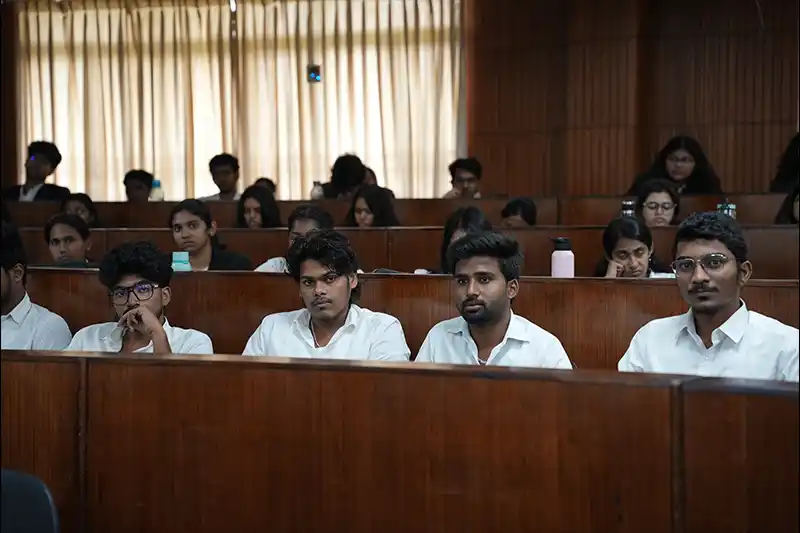Media




The Alliance Centre for Constitutional Law and Human Rights, Alliance School of Law, organised a guest lecture on Responsible AI. The session was delivered by Mr. Nikhil Narendran, Partner at Trilegal, specialising in Artificial Intelligence and Technology, Media and Telecommunications (TMT). The lecture brought together 160 students from III semester BA LLB ‘B’ section, III semester BBA LLB ‘B’ section, and V semester BBA LLB ‘B’ section.
Background and Context
The lecture addressed how the legal profession in India is entering a period of technological transformation driven by Generative AI. Once seen as speculative, AI is now becoming part of everyday legal work, from automated drafting and due diligence to AI-based case analysis and e-discovery platforms. Mr. Narendran noted that this development is not only technical but also structural, raising questions about the nature of legal practice, the relationship between lawyers and clients, and the identity of the profession itself.
For law firms, Generative AI presents challenges concerning confidentiality, accuracy, ethical risk, and readiness for adoption. Corporate legal teams, on the other hand, must rethink cost structures, efficiency, and trust in AI-driven processes. For young lawyers, the growing use of AI prompts reflection on learning, relevance, and professional growth. Beyond courtrooms and firms, these changes are also influencing organisational culture, time management, and expectations of output in the legal sector.
Key Themes of the Lecture
Mr. Narendran explored the evolving role of Generative AI in Indian corporate litigation, highlighting its impact on drafting, risk analysis, and litigation strategy. He discussed the ethical, regulatory, and practical implications of using AI in high-stakes disputes and reflected on how AI is reshaping productivity, decision-making, and time management within law firms and corporate legal teams.
The lecture also examined whether Indian legal infrastructure—technical, institutional, and regulatory—is ready for widespread AI adoption. Mr. Narendran encouraged students to think critically about how law, technology, and human judgment may co-evolve in a rapidly shifting legal ecosystem.
Format and Participation
The lecture was structured as a 45–55-minute talk, followed by a 10–15-minute interactive question-and-answer session. Students engaged with the speaker on issues concerning the future of legal work, the ethical use of AI, and the skills they would need to remain relevant in this evolving field.
Conclusion
The session concluded with reflections on how technology and human judgment can complement each other in shaping the future of legal practice. Organised under the patronage of Dr. V. Shyam Kishore, Associate Dean (Academic Affairs) and Dean, Alliance School of Law, and coordinated by faculty members Mr. Nikhil Erinjingat and Mr. K. Kirthan Shenoy, the event offered students an opportunity to explore the legal and ethical dimensions of artificial intelligence in a professional setting.
